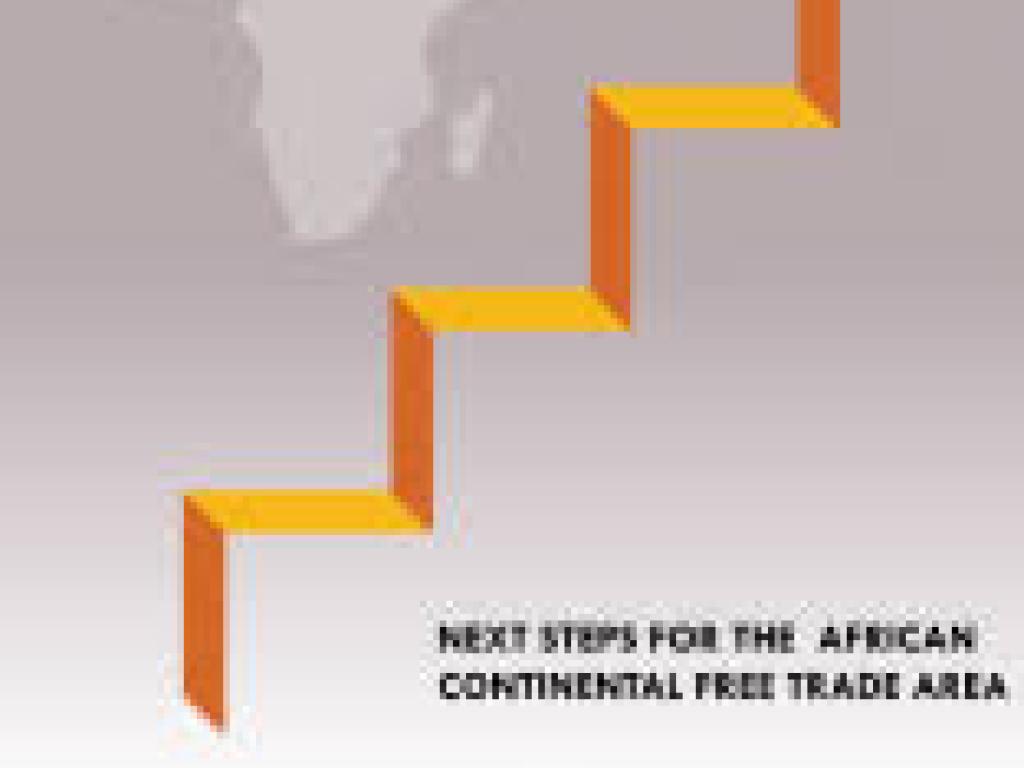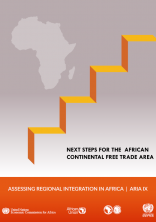UN Economic Commission for Africa launches the Assessing Regional Integration in Africa (ARIA) IX

By Chijioke Okorie [reposted from IPKat]
This Africa Correspondent has kept her eyes peeled for developments on the signings, ratifications and negotiations regarding the Agreement establishing the African Continental Free Trade Area (AfCFTA) and its Protocol on IP in particular. To her delight, Nigeria has finally signed the Agreement and with that, negotiations can proceed in earnest without fear. [There have been concerns that Nigeria, which is one of the largest countries in Africa in terms of economy and population size, had not yet signed the Agreement]
On a related matter, the UN Economic Commission for Africa (UNECA) has launched the widely anticipated report on Assessing Regional Integration in Africa (ARIA) IX. ARIA is an annual report that provides in-depth assessment of steps and policies towards regional integration in Africa. The ARIA IX is jointly published by the UNECA, UNCTAD, African Union and African Development Bank. ARIA IX beams its searchlight on AfCTFA, where it is coming from; where it currently is and where it is and/or should be headed. As this Africa Correspondent noted here, negotiations on the Protocol on IP (and the protocols on competition policy and investment respectively) is slated to happen later this year.
 The Report makes suggestions for the approach and principles to guide negotiations on the outstanding protocols. This post focuses on the Protocol on IP.
The Report makes suggestions for the approach and principles to guide negotiations on the outstanding protocols. This post focuses on the Protocol on IP.
The Report notes that, collectively, African countries have the lowest share of global applications for IP rights. See pages 112 – 113. There is also a significant gap between the number of IP applications filed by residents and foreigners in African countries – the number of IP applications by foreigners being considerably higher. [Africa Correspondent can personally confirm the accuracy of this finding at least for Nigeria, as she knows that the bulk of IP briefs for most IP firms in Nigeria are from foreign clients]. The Report also notes that one explanation for this trend is that the nature of innovation and IP activity happening in most of Africa occur largely in the informal sector and therefore, go largely unrecorded.
Using case studies from Nigeria’s Nollywood, Ethiopia’s coffee branding initiative and the teff patent debacle, Egypt’s capacity-building partnerships for patent examinations etc., the Report illustrates the often-informal structure of IP in African countries. See pages 120-122. This is a significant point and it is important that the Protocol on IP recognises these informal structures and works out how to record them appropriately. Whatever the Member States decide will determine whether the informal structures and the resultant IP infrastructure will remain ‘hidden’ from the global IP filing system or recognised and captured within the system. [There is always plenty talk about decolonizing IP systems: by extension, what AfCFTA does could be either conforming or decolonizing].
The Report identifies 3 models that regional approaches to IP rights have followed:
- Arrangements for regional cooperation on IP rights as exemplified by Organisation Africaine de la Propriété Intellectuelle (OAPI);
- Development of one substantive law for members of a regional economic community;
- Regional filing systems for patents, trademark and industrial designs. [See page 127]
Regarding the second model, the Report argues that, while it may leave Member States with some freedom in implementation, the substantive norms that it may stipulate may be insufficient to address the overall objectives of the AfCFTA. See page 128. The regional filing system as a model has the advantage of a one-stop filing system but may according to the Report, attract more filing outside Africa than within Africa. [Remember the huge informal sector activity noted in Africa?]
Given the benefits and drawbacks of these 3 models, the Report suggest a cherry-picking from the 3 models: Develop regional norms as in Model 2 but only on issues that would help regional integration and provide for a platform for cooperation on all IP rights as in Model 3. See page 128.
The Report suggests several substantive provisions for the Protocol on IP. Here are a few:
- Establishing a regional IP exhaustion system in order to prevent fragmentation of the AfCFTA market and encouraging the development of regional value chain integration.
- Protection of traditional knowledge, genetic resources and cultural expressions, with sufficient flexibility for domestic law and multilateral negotiations on the issue. [What better place for the continent to showcase its TK and TCE plans than in AfCFTA?]
- Requiring the ratification of the Marrakesh Treaty, with the additional commitment to adhere to any other multilateral agreement that promote access to work for persons with other disabilities. [The definition/recognition of “disability” can benefit from the Revised Scoping Study on Access to Copyright Protected Works by Persons with Disabilities discussed here]
- Addressing the challenges of African countries concerning plant varieties protection by developing minimum standards on availability, scope of protection and exceptions to plant breeders’ rights and the protection of traditional and new farmers’ varieties.
- Developing guidelines to strike the appropriate balance under the procedures for enforcement of IP rights. [This will take some crafting as it means formal procedures for informal structures].
Stay tuned!
THE IPKAT LICENSES USE OF ITS BLOG POSTS UNDER A CREATIVE COMMONS ATTRIBUTION-NON COMMERCIAL LICENCE.